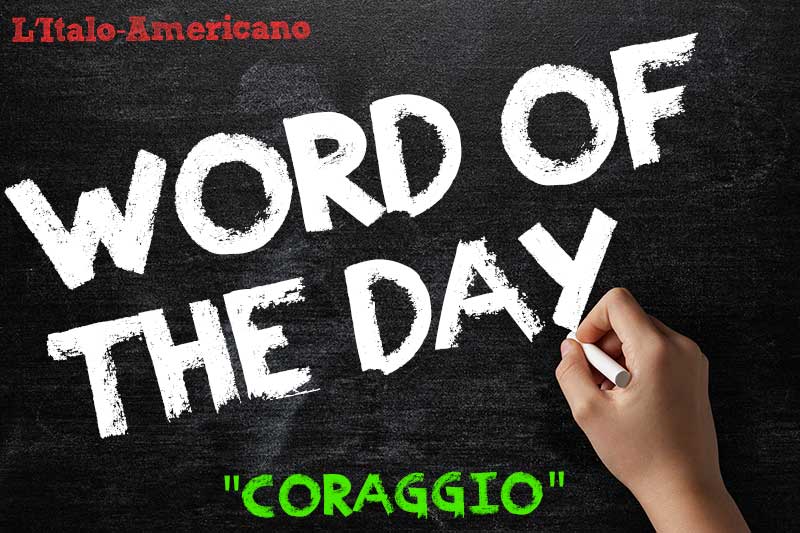If there is one thing people have been showing these days, that’d be coraggio (coh-rah-djoh). Its meaning is simple, because the Italian sounds and looks a lot like the English courage, which is exactly what it means.
Coraggio comes from two Latin words, cor, which means “heart,” and the verb habeo, which means “to have”so, at least at the beginning, it meant something like “having heart.” It evolved into some quirky Vulgar Latin words, like coraticum, but it came to our beautiful language through Provençal, an ancient variety of French (it’s a bit more complicated, but let’s leave it at that).
Coraggio, just like courage in English, is a very common word in Italian, of everyday use in all registers, and you find it also in a plethora of expressions, just as common as the word itself.
Forza e coraggio — or even just coraggio on its own — is something we say when we are about to begin a difficult task, as a way to show support to one another; it corresponds to the English “come on, keep going,” or “come on, let’s do this.”
We say avere coraggio da vendere (Literally, to have so much courage you can sell it) when talking about someone who is very brave, while a madre coraggio is a mother that shows strength and courage, especially when it comes to protecting her children.
Avere un bel coraggio, on the other hand, means to be cheeky or disrespectful, so you should be on the lookout if someone tells you that!

Forza e coraggio, amici miei. Abbiamo ancora molto da fare.
Come on, keep going my friends. We still have a lot to do.

Hai un bel coraggio a farti vedere dopo quello che hai combinato!
How cheeky of you to come here after what you’ve done!

Si è gettato nel fiume per salvare quel bambino, ha avuto coraggio da vendere.
He jumped in the river to save that kid: he’s been really brave.





























